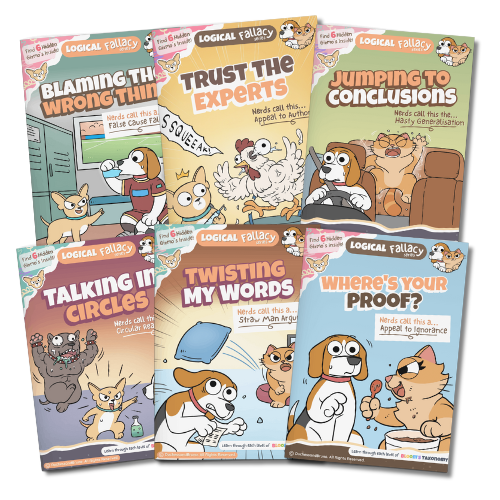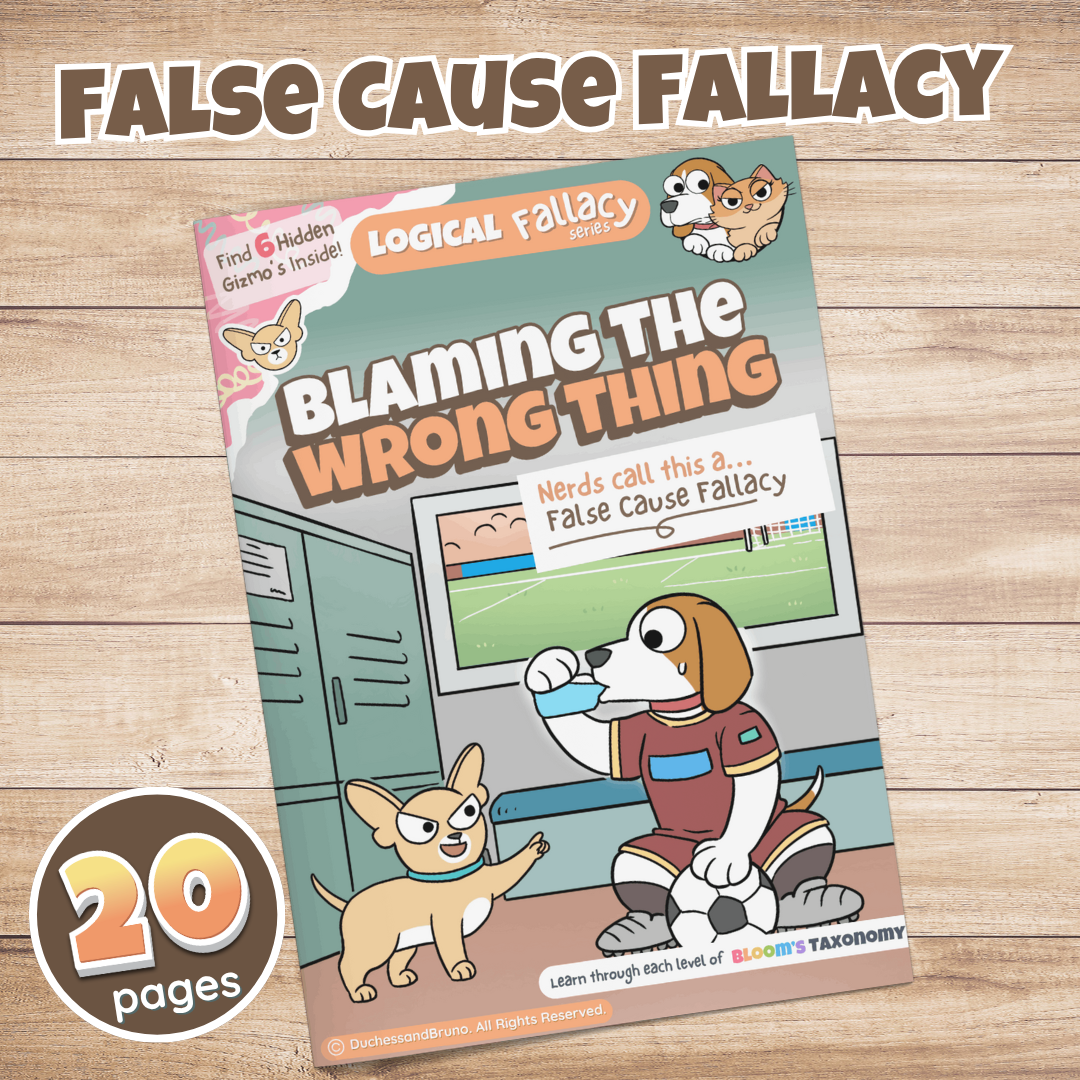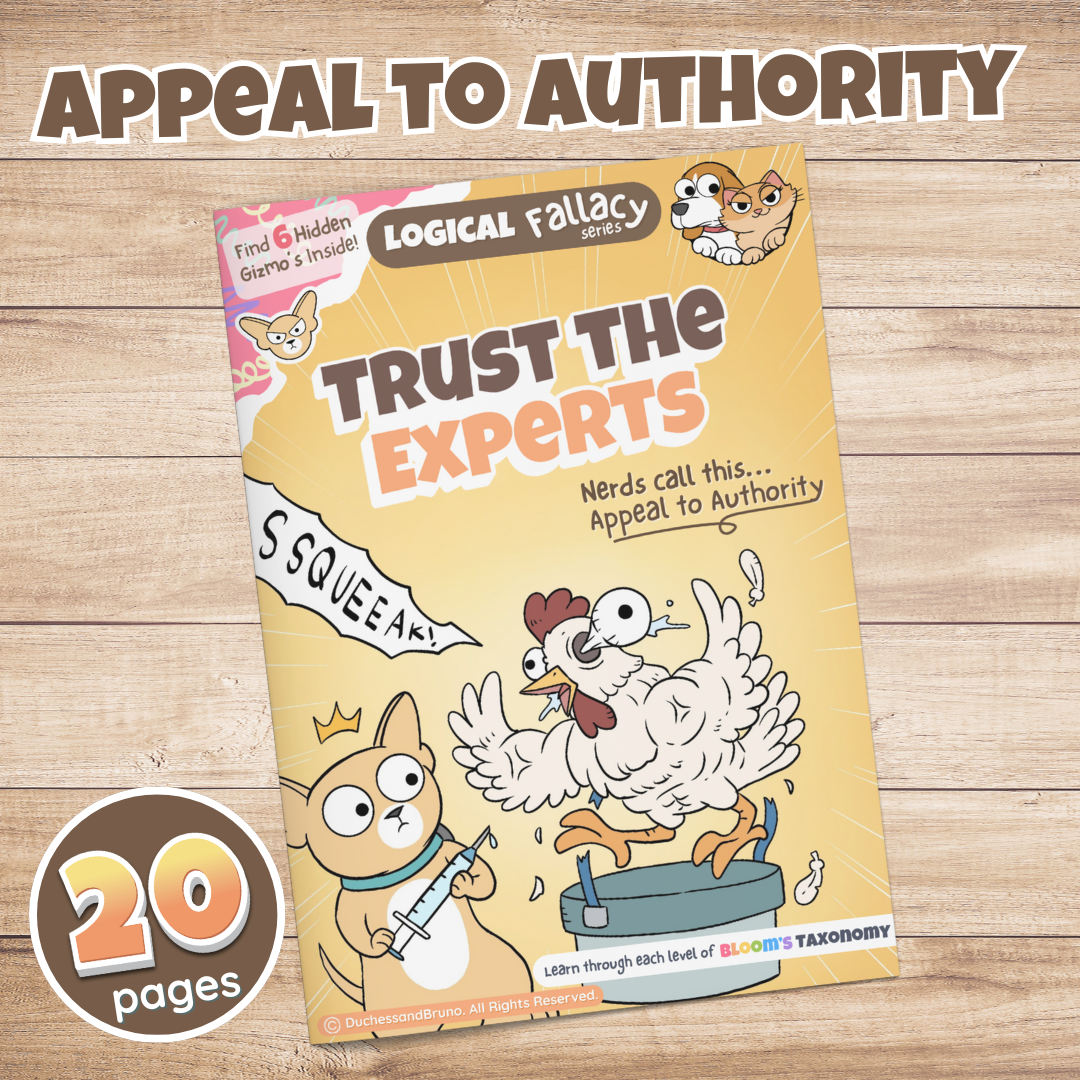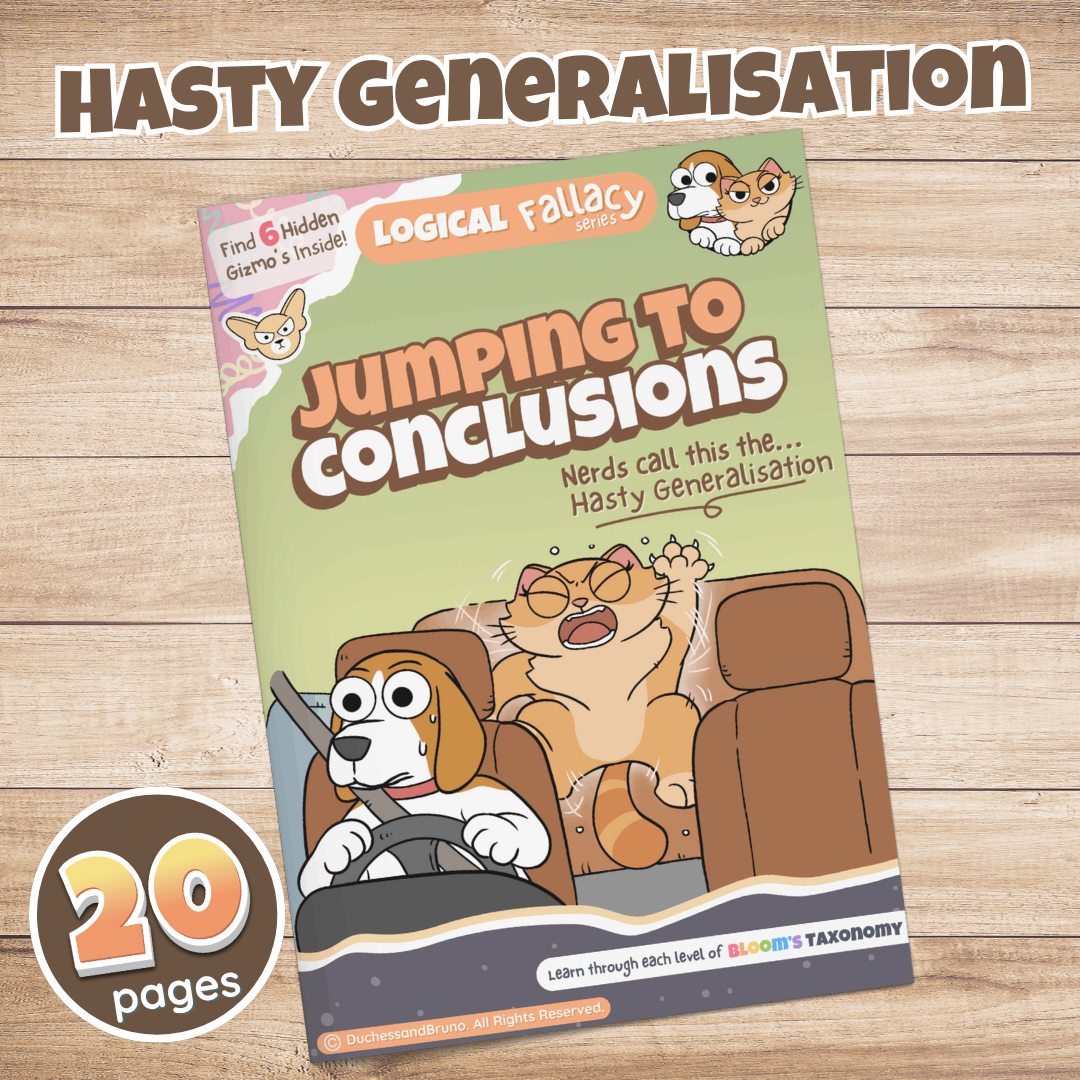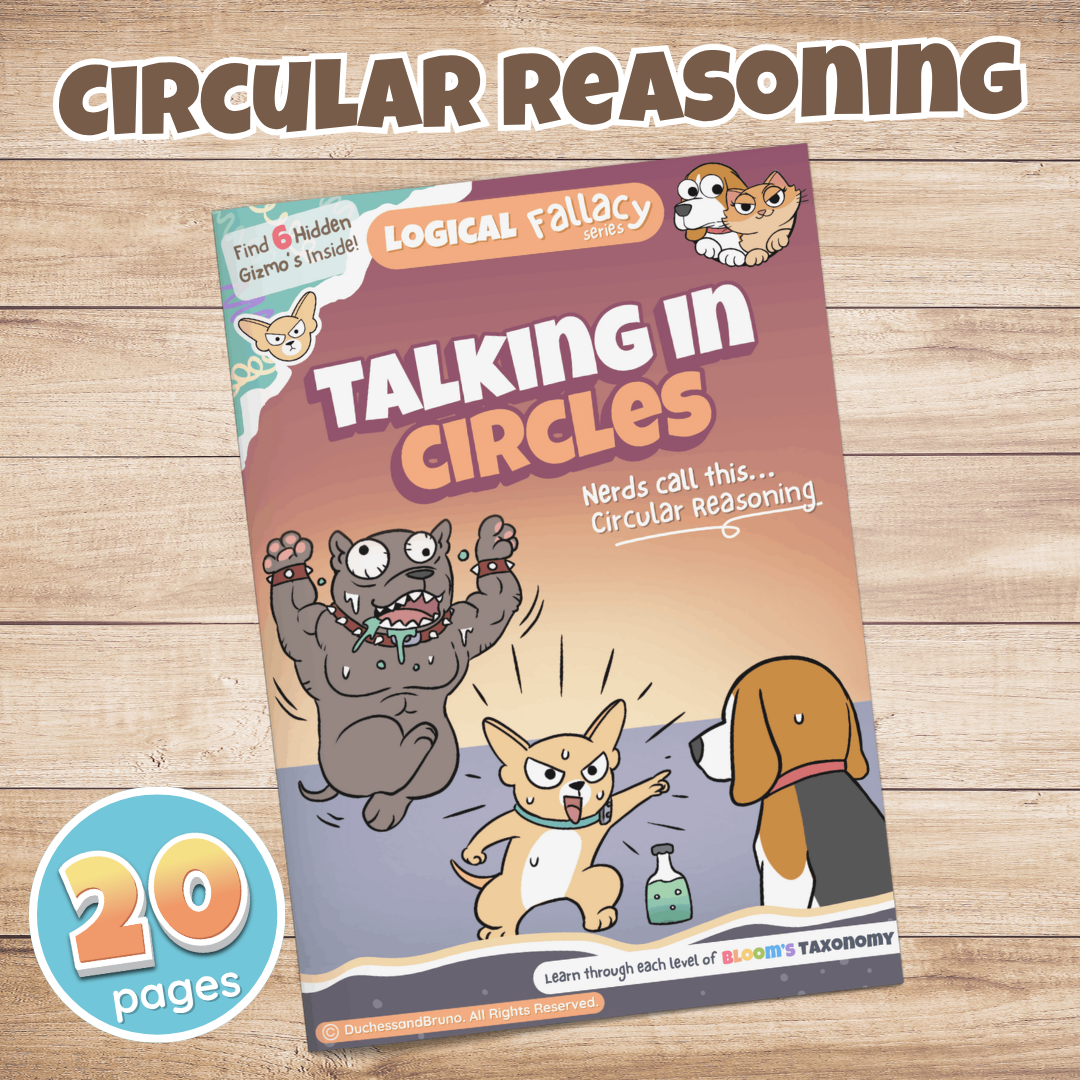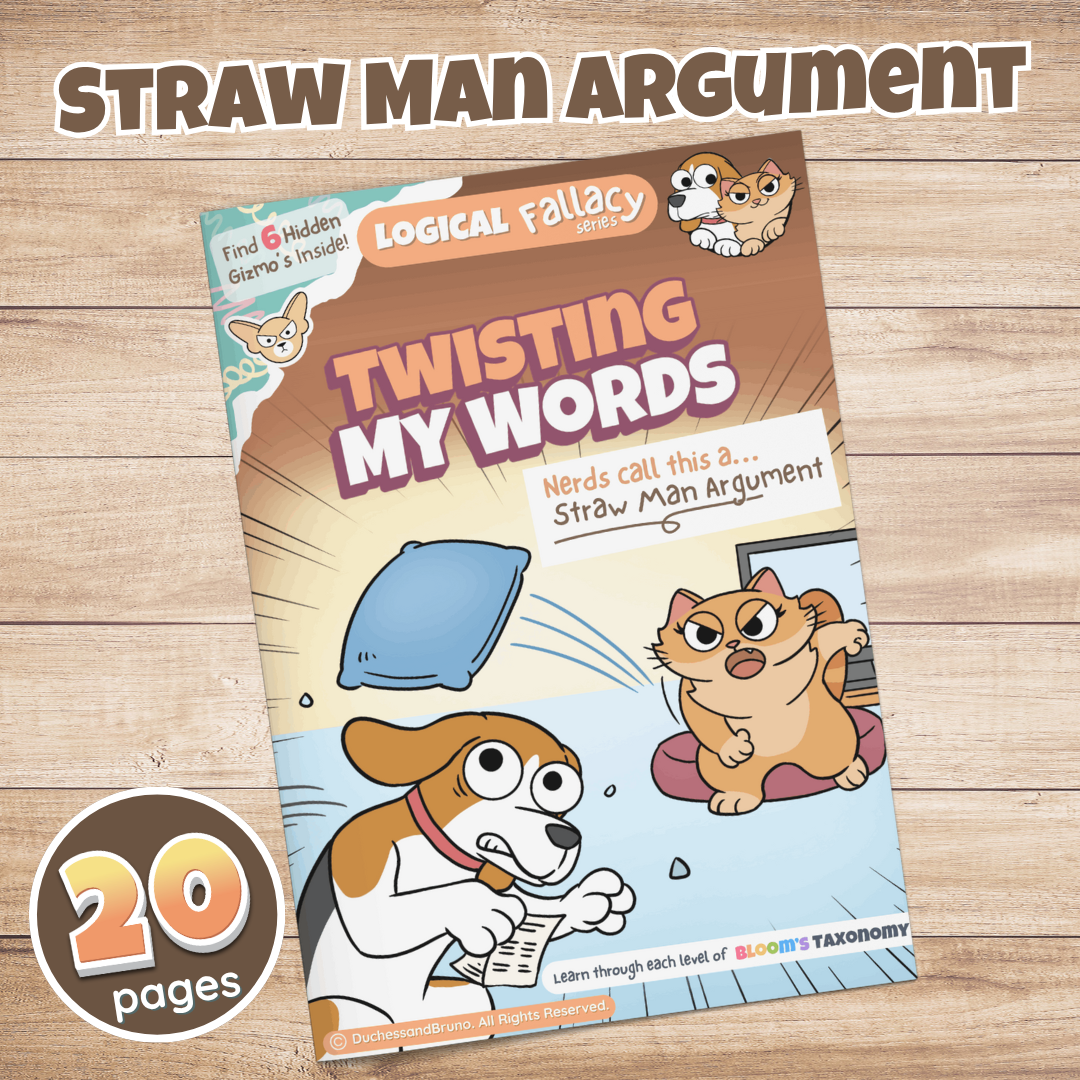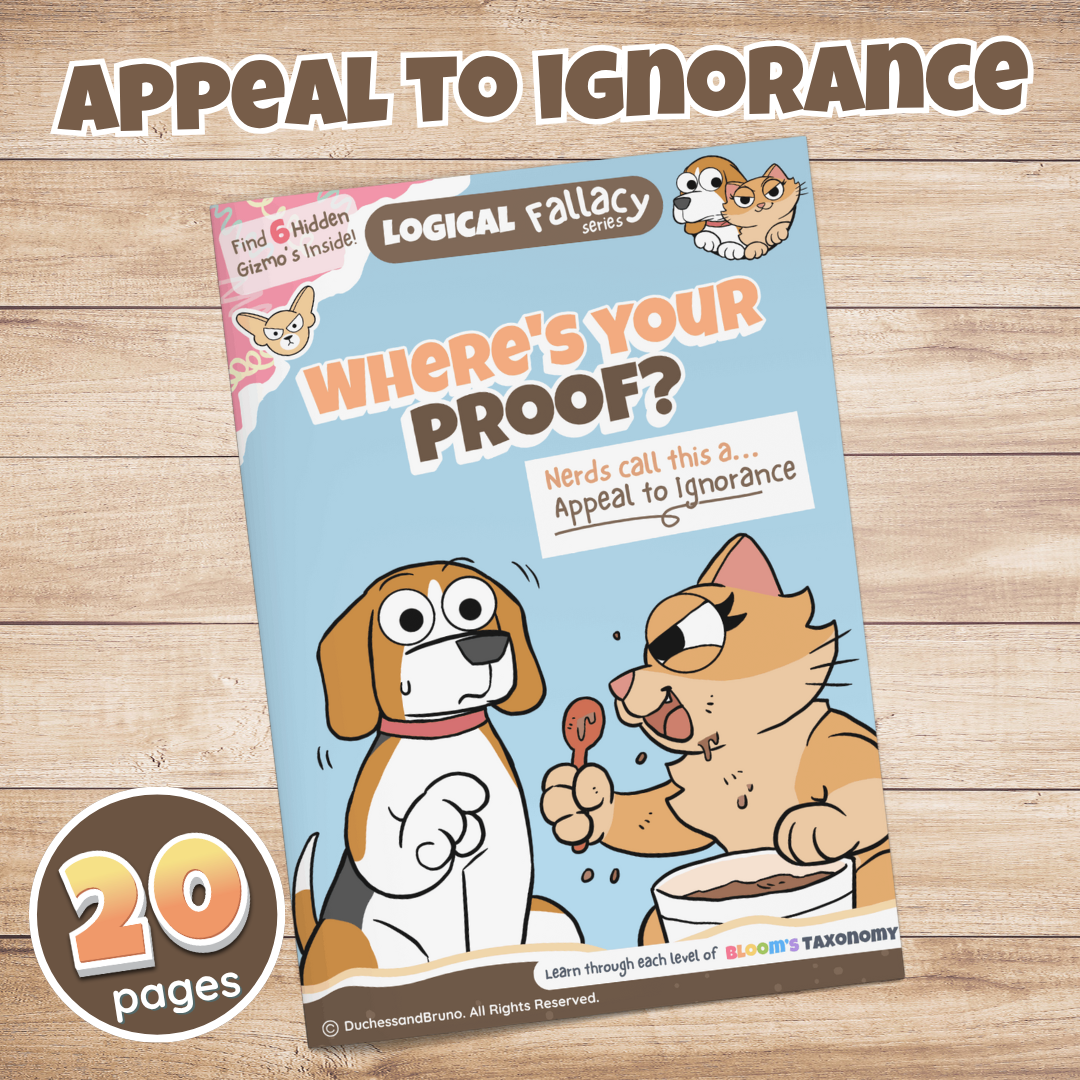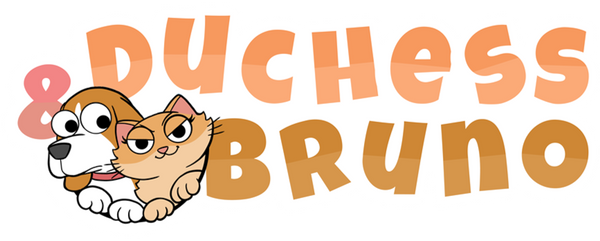Duchess and Bruno
Logical Fallacy Activity Pack Bundle 3
Logical Fallacy Activity Pack Bundle 3
Couldn't load pickup availability
Get ready to spot logical fallacies with Duchess and Bruno! This 6-Pack Activity Bundle is your key to unlocking smarter thinking and equipping kids with a vital skill for today's world.
Buy this bundle and get one pack free!
Each pack dives into a specific logical fallacy, breaking it down through:
- Gripping Historical Tales: See how these thinking traps have influenced major events in history.
- Funny Comics: Follow the adventures of Duchess and Bruno as they navigate these tricky arguments.
- Interactive Activities: Engage with fun activities and discussion prompts designed to build critical thinking muscles.
What's in the Bundle?
- False Cause: Learn to look past what seems obvious and find the real reason.
- Appeal to Authority: Discover why a person's status doesn't always make them right.
- Hasty Generalisation: See why jumping to conclusions based on limited information is a trap.
- Circular Reasoning: Uncover how some arguments just go in circles, proving nothing.
- Straw Man Argument: Learn to spot when someone misrepresents an argument to make it easier to attack.
- Appeal to Ignorance: Understand that a lack of evidence doesn't prove something is true or false.
This bundle is perfect for homeschoolers, teachers, and families who want a fun and effective way to teach a complex but essential subject. You'll save money by bundling and get everything you need to start your journey toward becoming a logical detective today!
Curriculum Alignment:
The following outlines how each Activity Pack meets the standards or outcomes of the Australian National Curriculum, UK National Curriculum, and US Common Core State Standards. Although each of these curricula may not always explicitly mention "critical thinking" or "logical fallacies", they do encourage critical thinking (a core aspect of logical fallacies) in various ways from Grades 6 and above.
Here are the key ways in which critical thinking is emphasised in these national curricula:
Australia (Australian National Curriculum):
In the Australian National Curriculum, critical thinking is encouraged through the development of general capabilities. Some key aspects include:
Critical and Creative Thinking: This capability is explicitly mentioned and emphasizes skills such as problem-solving, analysis, and evaluation. Students are expected to think critically and creatively across various subject areas.
Research Skills: Students are encouraged to conduct research, analyze information, and use evidence to support their arguments, which involves critical thinking.
Inquiry-Based Learning: The curriculum promotes inquiry-based learning, where students are expected to ask questions, gather data, and draw conclusions, fostering critical thinking skills.
United Kingdom (UK National Curriculum):
In the UK National Curriculum, critical thinking is promoted through various subjects and general expectations:
English: Students are expected to analyze texts critically, evaluate evidence, and develop persuasive arguments.
Mathematics: Problem-solving and reasoning are central to mathematics. Students are encouraged to think critically and justify their solutions.
Science: The scientific method emphasizes critical thinking, analysis of evidence, and drawing conclusions.
History and Geography: Analyzing historical and geographical data and considering multiple perspectives require critical thinking.
Citizenship: Students explore political and social issues, requiring them to think critically about their rights, responsibilities, and societal challenges.
Information Literacy: In an age of information overload, students are expected to critically evaluate information sources for reliability and bias.
United States (Common Core State Standards):
In the US Common Core State Standards, critical thinking is integrated into subject-specific standards and the broader goals for students:
English Language Arts (ELA): Students are expected to analyze texts, evaluate arguments, and develop persuasive writing, requiring critical thinking.
Mathematics: The Standards for Mathematical Practice emphasize problem-solving, reasoning, and critiquing the reasoning of others.
Science: The Next Generation Science Standards (NGSS), adopted by many states, promote scientific inquiry, evidence-based thinking, and argumentation.
Research Skills: Students are encouraged to conduct research, evaluate information, and use evidence to support their claims.
Social Studies: Analyzing historical events, evaluating primary and secondary sources, and considering various perspectives require critical thinking.
These curricula may not explicitly state "critical thinking" as a standalone outcome, but they are designed to foster critical thinking skills within various subjects and educational activities. Educators play a significant role in promoting and assessing critical thinking within their teaching based on their region's curriculum expectations.
Share
